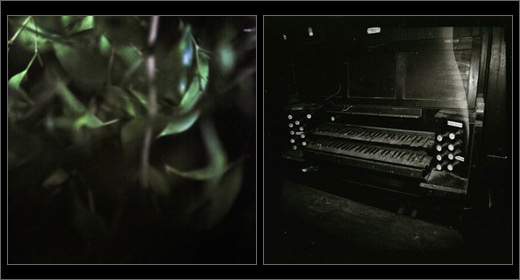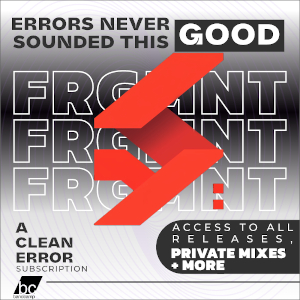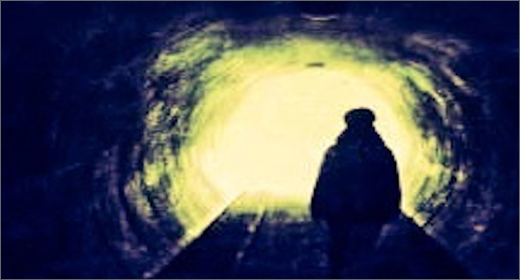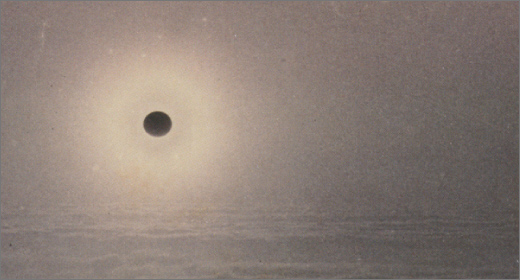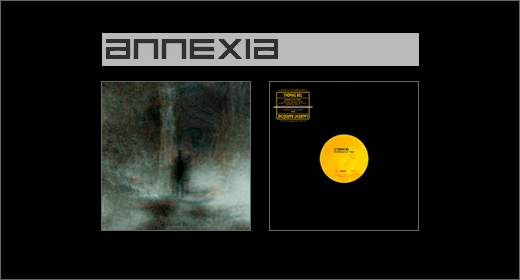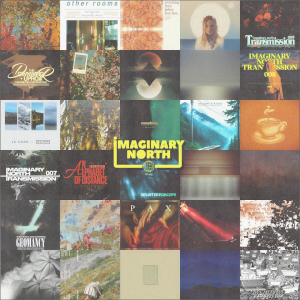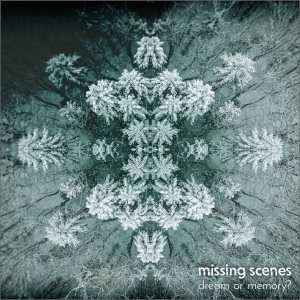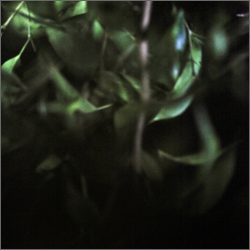 Roly Porter & Cynthia Millar :: Fall Back (Subtext)
Roly Porter & Cynthia Millar :: Fall Back (Subtext)
Dour as late autumn in the Highlands, multiinstrumentalist Cynthia Millar has stripped the traditional Scottish folk song “Henry Martin,” based on the story of a sixteenth-century aristocrat “turned robber on the high sea,” down to its aching bones and sinews stung by salt. Commissioned by Aldeburgh Music (an arts centre erected in memory of British composer Benjamin Britten) for its Faster than Sound festival, it lumbers with heavy timber and heaves thick chains, creating a kind of two-hundred year old industrial music. Millar trills and throbs on dobro and Ondes Martenot, a 1920s improvement on the theremin. Porter is said to be absorbed by the relationship between mankind, technology and nature, and on Fall Back he is the devil in the deep blue sea, droning deeply and squalling like a banshee, manipulating his electronics with the same distinction that made his solo debut Aftertime such a landmark album. An epic, innovative take on Celtic musical and maritime heritage.
:: ::: :: ::
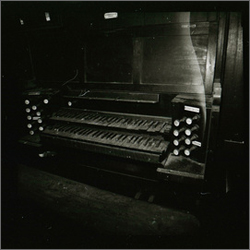 Richard Knox & Frederic D. Oberland :: The Rustle of the Stars (Gizeh)
Richard Knox & Frederic D. Oberland :: The Rustle of the Stars (Gizeh)
An Anglo-French atmospheric history lesson by Richard Knox and Frédéric D. Oberland. Setting their bearings for the Arctic Circle, the duo have created an eerie and intimate portrait of the first polar expeditions, the quest of shiploads of men to find the Northwest Passage sea route to the Orient, most of whom perished, the most legendary of which was the disappearance of the Franklin Expedition after it passed Baffiin Island in 1845.
This is sinking-into and drifting-starwards music, conveying the extremes of weather and its effect on the mind and body under the uncanny northern lights. The gray demeanor of the sea up north is rendered exquisitely, but further infused with colours both honestly earthy and cosmically magical. A Gavin Bryarsian-paced enterprise determined to achieve richness of experience rather than permanent residence in Davey Jones’ locker. It is draws the listener in deeply, immersively, caressing guitars and pianos, cellos and violins (Angela Chan is Knox’ partner in the ”ambient/modern classical” duo Glissando and is a third, but significant wheel) and a dusting of analogue electronics. And not without a melancholy uncertainty—for how reassuring can it be when you are the one charged with “Drawing Lines to the End of the World” without knowing exactly where it lies?






